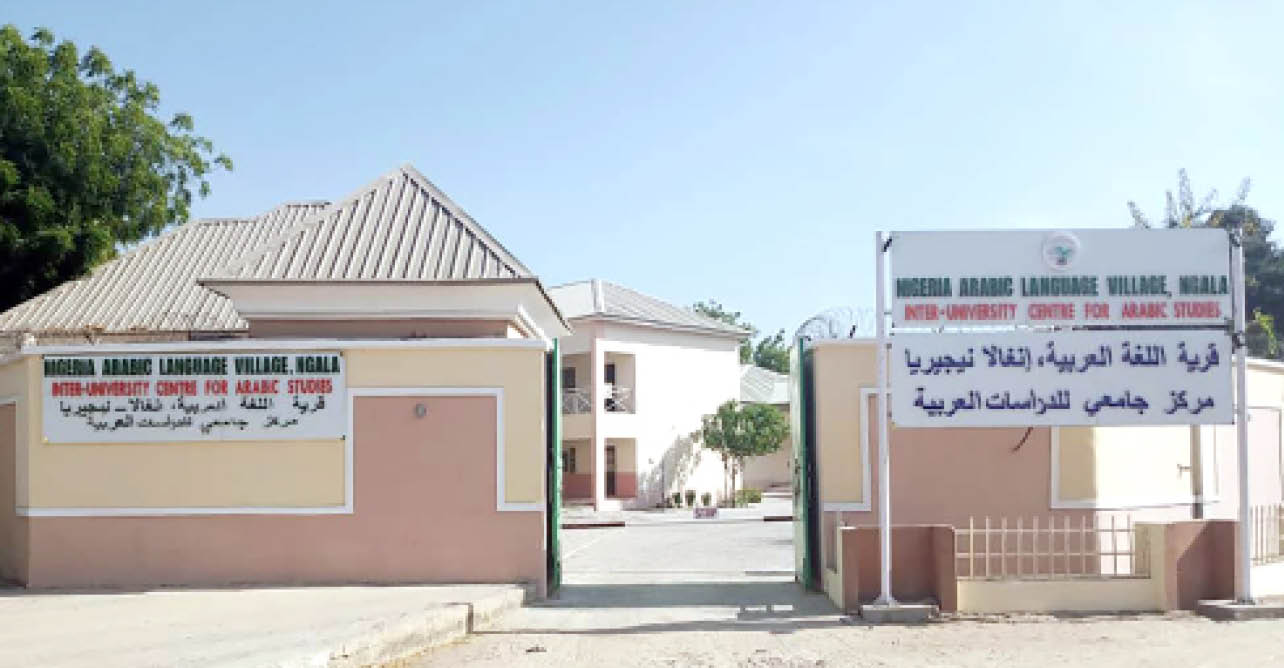Time to revive Arabic Language Village
Sequel to the restoration of relative peace in North East Nigeria after over a decade of insurgency, Governor Babagana Umara Zulum of Borno State repeatedly announced in recent months the intention of the state government to close Internally Displaced Persons (IDP) camps and return victims of insurgency to their native homes. The governor had reassured […]

Nigeria Arabic Language Village (NALV)
Sequel to the restoration of relative peace in North East Nigeria after over a decade of insurgency, Governor Babagana Umara Zulum of Borno State repeatedly announced in recent months the intention of the state government to close Internally Displaced Persons (IDP) camps and return victims of insurgency to their native homes. The governor had reassured the people of improved security; affirming that, “We now have 25 LGAs where people live, especially at the LGAs’ headquarters.”
Aside from IDPs, many schools and institutions in the same North East of the country also suffered infrastructural devastations and were consequently displaced. The Nigeria Arabic Language Village (NALV) is one of the several public institutions displaced from its site in Borno State. Insurgents did not only destroy its physical structures but also completely halted its academic activities; stopping university undergraduate students and their counterparts in colleges of education from going to the NALV for the mandatory language immersion programme.
The NALV is an Inter-University Centre for Arabic Studies in Nigeria. It was established in 1992 to cater for the language immersion requirement of students offering Arabic language in Nigerian universities. Before then, students undergoing the Bachelor of Arts (BA) programme in all Nigerian universities were sent to an Arabic-speaking country at government expense for the one-year immersion programme. The overseas trip was designed to enable Arabic students to acquire all the four basic skills of language, which by the National Universities Commission (NUC)’s guideline, was a graduation requirement for such students.
In the mid-1980s, sending students of the BA Arabic programme increasingly became a huge financial burden on government. It was against this background that the federal government set up a ministerial planning committee in the late 1980s on the establishment of Arabic Language Village. The report and recommendations of this committee led to the establishment of the NALV as well as the French Language Village at Badagry to separately cater for the immersion needs of students of these two international languages in Nigerian universities.
Ngala, which is an Arabic-speaking community in Borno State, was chosen as the location for the NALV. This was intended to help students to achieve the required competence and proficiency in the Arabic language. The choice of Ngala as the host-community for the site of the NALV was deliberate. It is an indigenous community inhabited by the Shuwa Arabs who are native speakers of a dialect of the Arabic language in North East Nigeria. Ngala provides non-native learners of Arabic with the linguistic milieu needed to ease the acquisition of the language in a non-Arab country, Nigeria. Ngala directly exposes learners of Arabic to the culture of its native speakers just as it also provides them with the opportunity to apply the grammatical and phonological rules of the language learnt in the classroom.
Addressing foreign and local humanitarian partners in Maiduguri recently, Governor Zulum said IDPs have been requesting that they should be allowed to go back to their homes. In the same way that IDPs are agitating to leave their respective camps because of the abnormal life that characterises such humanitarian accommodation, the NALV is also itching to return to its permanent site at Ngala because of the logistic constraints that are preventing it from carrying out its statutory mandate. For example, the continued stay of the NALV in Maiduguri which is neither an Arabic-speaking community nor has provisions for hostel accommodation, lecture halls and other basic facilities for students seeks to undermine the functions for which the institution exists. Remaining in a state of perpetual humanitarian situation or allowing such a situation to become the norm is neither the wish of the IDPs nor of the displaced public institutions.
For the revitalisation efforts of the current leadership at the NALV to come to fruition and for functional academic activities to fully resume, all the institution’s structures destroyed at its Ngala site must first be rebuilt. Daily Trust, therefore, calls on the federal government, the Borno State government and the North East Development Commission to initiate and support special interventions for the reconstruction of the NALV. If it is safe enough for IDPs to return to the newly built houses in their LGA headquarters or villages, it is also time to rebuild, revive and return the NALV to Ngala.
